The Government of India gives awards and honours every year to people or communities for their extraordinary work in society as a token of appreciation. The Government of India gives several honours every year to those who have achieved outstanding merit in their field such as Bharat Ratna, National Film Awards, etc.
Indian Highest Civilian Award
Indian highest civilian award is Bharat Ratna which stands as a symbol of extraordinary achievement and exceptional service to the nation. Bharat Ratna conferred to those individuals who have made remarkable contribution in various fields. This prestigious award was started in 1954 and given in the field of arts, literature, public service, science and more.
Here we will read about the Honours and Padma Awards in India in detail.
About Highest Civilian Awards: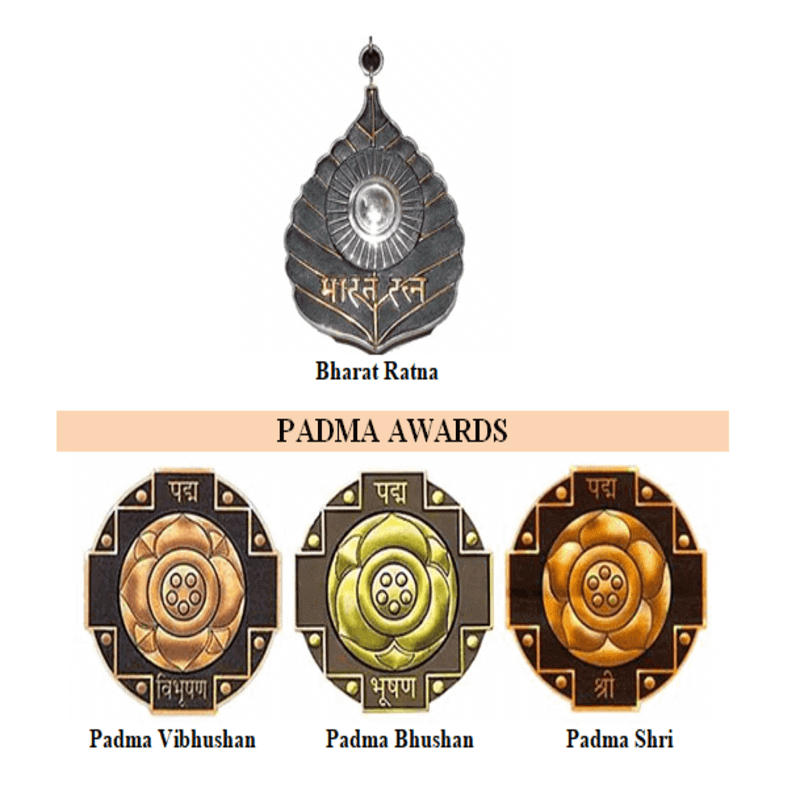
Civilian Awards are conferred to people with outstanding achievements in their field of work. These awards are presented to the respective recipients by the President of India on Republic Day. The inception year of these Civilian awards is 1954.
Civilian Awards in India are categorized according to the degree of honour.
The Highest Civilian awards conferred are:
- Bharat Ratna– First Highest Civillian Award in India
- Padma Vibhushan– Second (2nd) Highest Civillian Award in India
- Padma Bhushan– Third (3rd) Highest Civillian Award in India
- Padma Shri– Fourth (4th) Highest Civillian Award in India
About Bharat Ratna Award: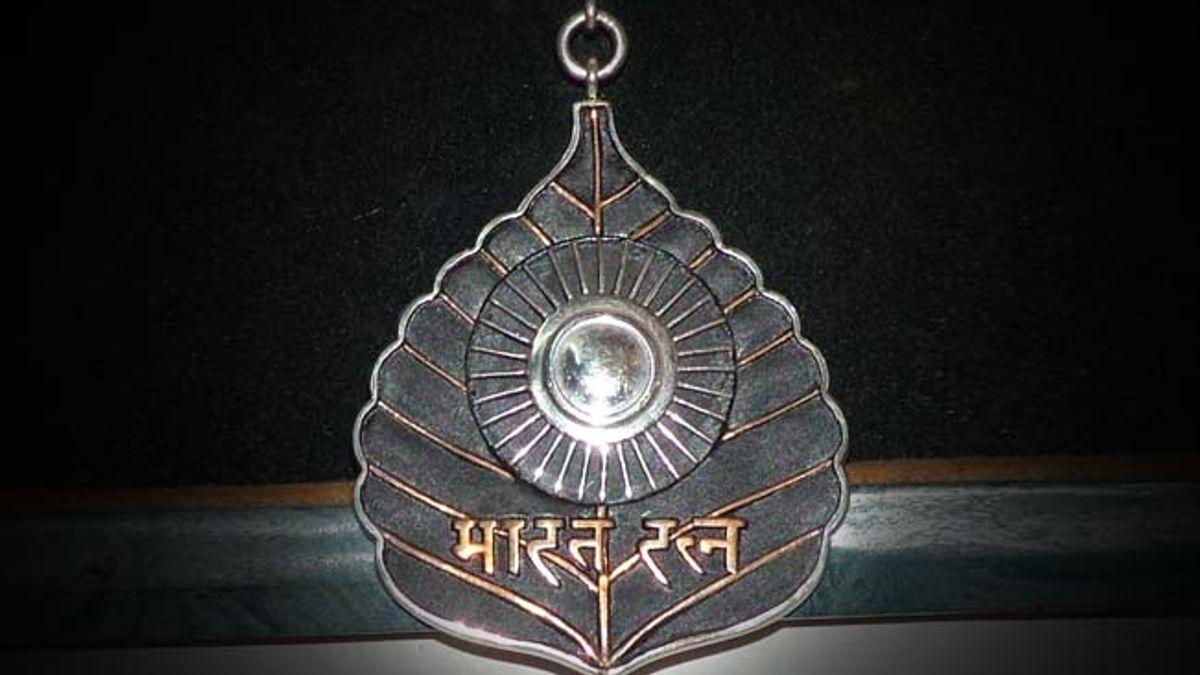
Bharat Ratna is India’s highest civilian award. It is awarded for the highest degrees of national service. This service includes artistic, literary, and scientific achievements, as well as recognition of public service of the highest order. Sports were added to this award category in 2013. Unlike knights, holders of the Bharat Ratna carry no special title or any other honorifics, but they do have a place in the Indian order of precedence.
The Bharat Ratna award was established by the first President of India, Rajendra Prasad, on 2 January 1954. Along with other major national honours, such as the Padma Vibhushan, Padma Bhushan and Padma Shri, the awarding of the Bharat Ratna was suspended from July 13, 1977 to January 26, 1980.
List of Fields to give Bharat Ratna Award:
Any person without distinction of race, occupation, position or sex is eligible for this award. The recommendations for Bharat Ratna are made by the Prime Minister to the President. No formal recommendations for this are necessary.
Maximum Bharat Ratna Awardee in a Year:
The number of annual awards is restricted to a maximum of three in a particular year. On conferment of the award, the recipient receives a Sanad (certificate) signed by the President and a medallion.
Bharat Ratna Award Description:
The award does not carry any monetary grant. The decoration is in the form of a Peepal leaf, about 5.8 cm long, 4.7 cm wide and 3.1 mm thick. It is of toned bronze. On its obverse is embossed a replica of the Sun, 1.6 cm in diameter, below which the words Bharat Ratna are embossed in Devanagari script. On the reverse are State emblem and the motto, also in Devanagari. The emblem, the Sun and the rim are of platinum. The inscriptions are in burnished bronze.
In terms of Article 18 (1) of the Constitution, the award cannot be used as a prefix or suffix to the recipient’s name.
The first award was given in 1954 (C. rajgopalchari) and initially went to those artists who had outstanding achievements in the field of art, science, literature and public service. In 2011, the criteria was expanded to include any field of human endeavour.
BHARAT RATNA AWARD WINNERS LIST:
| Sl.No | Name | Year | Prime minister | Party in power | Province |
|---|---|---|---|---|---|
| 1 | C. Rajagopalachari | 1954 | Jawaharlal Nehru | Indian National Congress | Tamil Nadu |
| 2 | Sarvapalli Radhakrishnan | 1954 | Jawaharlal Nehru | Indian National Congress | Tamil Nadu |
| 3 | C. V. Raman | 1954 | Jawaharlal Nehru | Indian National Congress | Tamil Nadu |
| 4 | Bhagwan Das | 1955 | Jawaharlal Nehru | Indian National Congress | Uttar Pradesh |
| 5 | M. Visvesvaraya | 1955 | Jawaharlal Nehru | Indian National Congress | Karnataka |
| 6 | Jawaharlal Nehru | 1955 | Jawaharlal Nehru | Indian National Congress | Uttar Pradesh |
| 7 | Govind Ballabh Pant | 1957 | Jawaharlal Nehru | Indian National Congress | Uttarakhand |
| 8 | Dhondo Keshav Karve | 1958 | Jawaharlal Nehru | Indian National Congress | Maharashtra |
| 9 | Bidhan Chandra Roy | 1961 | Jawaharlal Nehru | Indian National Congress | Bihar |
| 10 | Purushottam Das Tandon | 1961 | Jawaharlal Nehru | Indian National Congress | Uttar Pradesh |
| 11 | Rajendra Prasad | 1962 | Jawaharlal Nehru | Indian National Congress | Bihar |
| 12 | Zakir Husain | 1963 | Jawaharlal Nehru | Indian National Congress | Hyderabad |
| 13 | Pandurang Vaman Kane | 1963 | Jawaharlal Nehru | Indian National Congress | Maharashtra |
| 14 | Lal Bahadur Shastri | 1966 | Indira Gandhi | Indian National Congress | Uttar Pradesh |
| 15 | Indira Gandhi | 1971 | Indira Gandhi | Indian National Congress | Uttar Pradesh |
| 16 | V. V. Giri | 1975 | Indira Gandhi | Indian National Congress | Odisha |
| 17 | K. Kamaraj | 1976 | Indira Gandhi | Indian National Congress | Tamil Nadu |
| 18 | Mother Teresa | 1980 | Indira Gandhi | Indian National Congress | North Macedonia |
| 19 | Vinoba Bhave | 1983 | Indira Gandhi | Indian National Congress | Maharashtra |
| 20 | Khan Abdul Ghaffar Khan | 1987 | Rajiv Gandhi | Indian National Congress | Pakistan |
| 21 | M. G. Ramachandran | 1988 | Rajiv Gandhi | Indian National Congress | Sri Lanka |
| 22 | B.R. Ambedkar | 1990 | Vishwanath Pratap Singh | Janata Dal (NF) | Madhya Pradesh |
| 23 | Nelson Mandela | 1990 | Vishwanath Pratap Singh | Janata Dal (NF) | Union of South Africa |
| 24 | Rajiv Gandhi | 1991 | P. V. Narasimha Rao | Indian National Congress | Maharashtra |
| 25 | Vallabhbhai Patel | 1991 | P. V. Narasimha Rao | Indian National Congress | Gujarat |
| 26 | Morarji Desai | 1991 | P. V. Narasimha Rao | Indian National Congress | Gujarat |
| 27 | Abul Kalam Azad | 1992 | P. V. Narasimha Rao | Indian National Congress | Saudi Arabia |
| 28 | J. R. D. Tata | 1992 | P. V. Narasimha Rao | Indian National Congress | France |
| 29 | Satyajit Ray | 1992 | P. V. Narasimha Rao | Indian National Congress | West Bengal |
| 30 | Gulzarilal Nanda | 1997 | Inder Kumar Gujral | Janata Dal (NF) | Pakistan |
| 31 | Aruna Asaf Ali | 1997 | Inder Kumar Gujral | Janata Dal (NF) | Haryana |
| 32 | A.P.J Abdul Kalam | 1997 | Inder Kumar Gujral | Janata Dal (NF) | Tamil Nadu |
| 33 | M. S. Subbulakshmi | 1998 | Inder Kumar Gujral | Janata Dal (NF) | Tamil Nadu |
| 34 | Chidambaram Subramaniam | 1998 | Inder Kumar Gujral | Janata Dal (NF) | Tamil Nadu |
| 35 | Jayaprakash Narayan | 1999 | Atal Bihari Vajpayee | Bharatiya Janata Party (NDA) | Bihar |
| 36 | Amartya Sen | 1999 | Atal Bihari Vajpayee | Bharatiya Janata Party (NDA) | West Bengal |
| 37 | Gopinath Bordoloi | 1999 | Atal Bihari Vajpayee | Bharatiya Janata Party (NDA) | Assam |
| 38 | Ravi Shankar | 1999 | Atal Bihari Vajpayee | Bharatiya Janata Party (NDA) | Uttar Pradesh |
| 39 | Lata Mangeshkar | 2001 | Atal Bihari Vajpayee | Bharatiya Janata Party (NDA) | Madhya Pradesh |
| 40 | Bismillah Khan | 2001 | Atal Bihari Vajpayee | Bharatiya Janata Party (NDA) | Bihar |
| 41 | Bhimsen Joshi | 2009 | Manmohan Singh | Indian National Congress (UPA) | Karnataka |
| 42 | C. N. R. Rao | 2014 | Manmohan Singh | Indian National Congress (UPA) | Karnataka |
| 43 | Sachin Tendulkar | 2014 | Manmohan Singh | Indian National Congress (UPA) | Maharashtra |
| 44 | Madan Mohan Malaviya | 2015 | Narendra Modi | Bharatiya Janata Party (NDA) | Uttar Pradesh |
| 45 | Atal Bihari Bajpayee | 2015 | Narendra Modi | Bharatiya Janata Party (NDA) | Madhya Pradesh |
| 46 | Pranab Mukherjee | 2019 | Narendra Modi | Bharatiya Janata Party (NDA) | West Benagl |
| 47 | Nanaji Deshmukh | 2019 | Narendra Modi | Bharatiya Janata Party (NDA) | Maharashtra |
| 48 | Bhupen Hazarika | 2019 | Narendra Modi | Bharatiya Janata Party (NDA) | Assam |
About Padma Awards: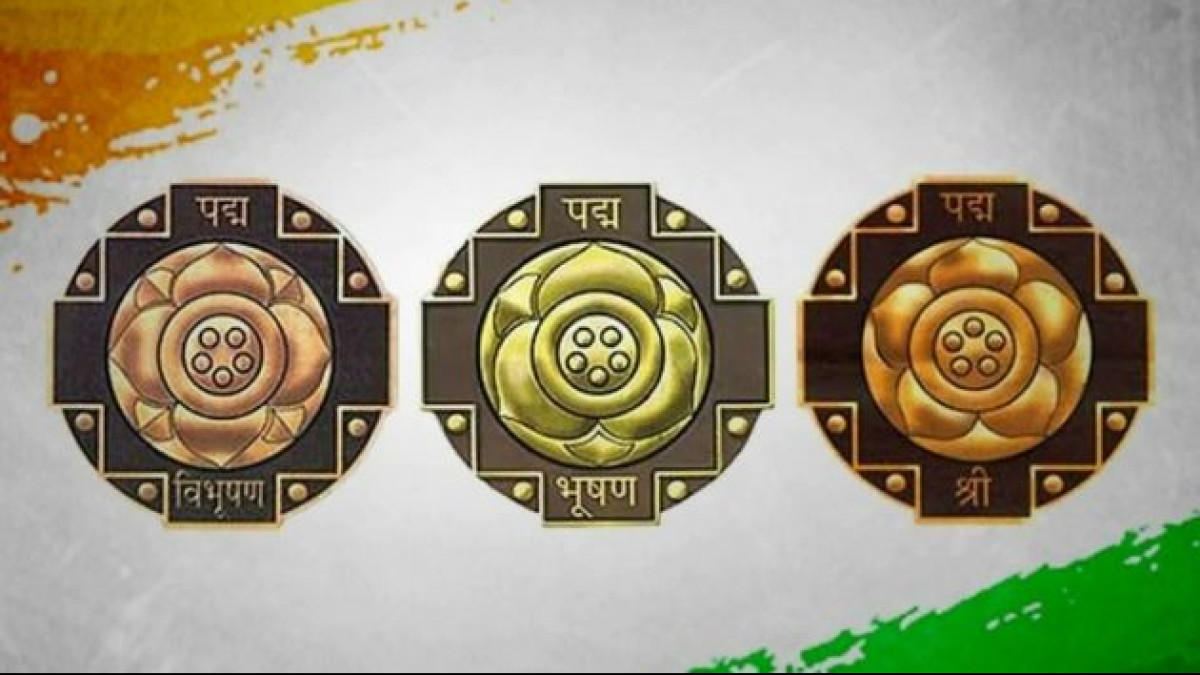
The Padma Awards are one of the highest civilian honours of India. They are announced annually on the eve of Republic Day. The awards come under the aegis of the Ministry of Home Affairs. The award seeks to recognize achievements in all fields of activities or disciplines where an element of public service is involved. The Padma Awards are conferred on the recommendations made by the Padma Awards Committee, which is constituted by the Prime Minister every year. The nomination process is open to the public. Even self-nomination can be made.
List of fields to Give Padma Vibhushan, Padma Bhushan, and Padma Shri
Padma Awards, which were instituted in the year 1954, is announced every year on the occasion of Republic Day except for brief interruption(s) during the years 1978 and 1979 and 1993 to 1997.
The constitutional validity of Padma Awards was challenged in 1992 in Kerala and Madhya Pradesh concerning the Public interest Litigation filed. The award was suspended until the issue was resolved in the respective courts.
All persons without distinction of race, occupation, position, or sex are eligible for these awards. However, Government servants including those working with PSUs, except doctors and scientists, are not eligible for these awards.
The award seeks to recognize works of distinction and is given for distinguished and exceptional achievements/service in all fields of activities/disciplines.
Padma Awards: A list of the fields is as under:
- Art (Music, Painting, Sculpture, Photography, Cinema, Theatre, etc.)
- Social work (social service, charitable service, contribution to community projects, etc.)
- Public Affairs (Law, Public Life, Politics, etc.)
- Science & Engineering (Space Engineering, Nuclear Science, Information Technology, Research & Development in Science & its allied subjects, etc.)
- Trade & Industry (Banking, Economic Activities, Management, Promotion of Tourism, Business, etc.)
- Medicine (medical research, distinction/specialization in Ayurveda, Homeopathy, Siddha, Allopathy, Naturopathy, etc.)
- Literature & Education (Journalism, Teaching, Book composing, Literature, Poetry, Promotion of education, Promotion of literacy, Education Reforms, etc.)
- Civil Service (distinction/excellence in administration etc. by Government Servants)
- Sports (popular Sports, Athletics, Adventure, Mountaineering, promotion of sports, Yoga, etc.)
- Others (fields not covered above and may include propagation of Indian Culture, protection of Human Rights, Wild Life protection/conservation, etc.)
Padma Vibhushan:
Padma Vibushan is the second-highest civilian award in India. This is conferred to people with distinguished achievements in the field of Arts, Literature, Science, Public Services.
This award has a circular shape with a geometric pattern superimposed on the circle and is toned bronze. In the centre of the circle, a lotus flower is embossed. The word “Padma” and “Vibushan” are inscribed above and below the lotus flower in Devnagri Script. On the reverse side, it has the State Emblem and State Motto.
Padma Bhushan:
This is the third-highest civilian award in India and is conferred to people with achievements for service in any field including service rendered by Government servants including doctors and scientists, but exclude those working with the public sector undertakings.
This award has a similar design to the Padma Vibhushan. All the embossing is done in gold.
Padma Shri:
In the order of rank, Padma Shri is the fourth highest civilian award. This award is conferred to people for achievements in any field including the service rendered by the Government employees.
The shape of the award is the superimposition of a geometric pattern on the circle. The words “Padma” and “Shri” are embossed above and below the lotus flower in the centre. All the embossing is done in stainless steel and the periphery is furnished in bronze.
The Padma Awards Committee:
All nominations received for Padma Awards are placed before the Padma Awards Committee, which is constituted by the Prime Minister every year.
The Padma Awards Committee is headed by the Cabinet Secretary and includes Home Secretary, Secretary to the President, and four to six eminent persons as members.
The recommendations of the committee are submitted to the Prime Minister and the President of India for approval.
The Padma Awards Important Facts:
- The award is normally not conferred posthumously. However, in highly deserving cases, the Government could consider giving an award posthumously.
- A higher category of Padma award can be conferred on a person only where at least five years have elapsed since the conferment of the earlier Padma award. However, in highly deserving cases, a relaxation can be made by the Awards Committee.
- The awards are presented by the President of India usually in March/April every year where the awardees are presented a Sanad (certificate) signed by the President and a medallion.
- The recipients are also given a small replica of the medallion, which they can wear during any ceremonial/State functions etc. if the awardees so desire. The names of the awardees are published in the Gazette of India on the day of the presentation ceremony.
- The total number of awards to be given in a year (excluding posthumous awards and to NRI/foreigners/OCIs) should not be more than 120.
- The award does not amount to a title and cannot be used as a suffix or prefix to the awardees’ name.
Padma Awards 2023: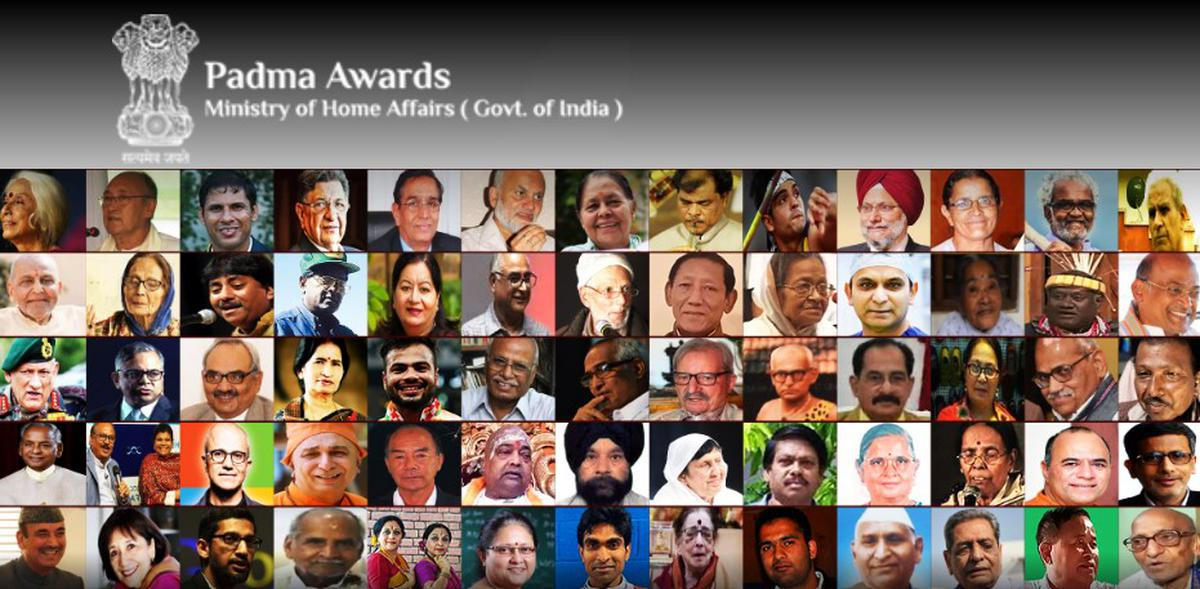
This year’s Padma Awards, which are the second highest civilian award in the country, have recognized 26 unsung heroes among the 106 awardees. Dilip Mahalanabis, a medical researcher who promoted the worldwide use of Oral Rehydration Solution and saved over 5 crore lives globally, has been selected for the Padma Vibhushan.
Padma Vibhushan Award List 2023: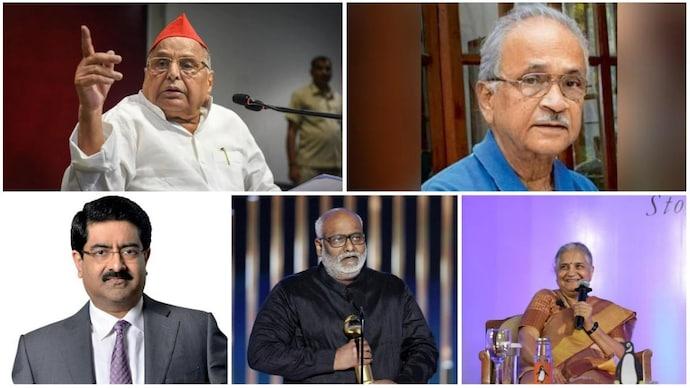
| SN | Name | Field | State/Country |
|
1. |
Shri Balkrishna Doshi (Posthumous) | Others – Architecture | Gujarat |
|
2. |
Shri Zakir Hussain | Art | Maharashtra |
|
3. |
Shri S M Krishna | Public Affairs | Karnataka |
|
4. |
Shri Dilip Mahalanabis (Posthumous) | Medicine | West Bengal |
|
5. |
Shri Srinivas Varadhan | Science & Engineering | United States of America |
|
6. |
Shri Mulayam Singh Yadav (Posthumous) | Public Affairs | Uttar Pradesh |
Padma Bhushan 2023 Award List:
| SN | Name | Field | State/Country |
| 7. | Shri S L Bhyrappa | Literature & Education | Karnataka |
| 8. | Shri Kumar Mangalam Birla | Trade & Industry | Maharashtra |
| 9. | Shri Deepak Dhar | Science & Engineering | Maharashtra |
| 10. | Ms. Vani Jairam | Art | Tamil Nadu |
| 11. | Swami Chinna Jeeyar | Others – Spiritualism | Telangana |
| 12. | Ms. Suman Kalyanpur | Art | Maharashtra |
| 13. | Shri Kapil Kapoor | Literature & Education | Delhi |
| 14. | Ms. Sudha Murty | Social Work | Karnataka |
| 15. | Shri Kamlesh D Patel | Others – Spiritualism | Telangana |

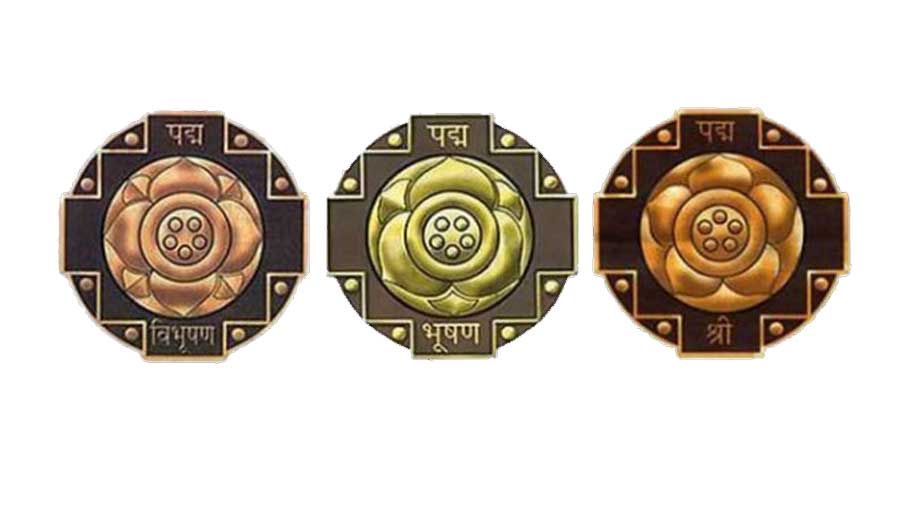

 Indian Olympic Medal Winners List Till N...
Indian Olympic Medal Winners List Till N...
 Who is the Inventor of the Gramophone?
Who is the Inventor of the Gramophone?
 HS Dhaliwal Appointed New DGP Of Andaman...
HS Dhaliwal Appointed New DGP Of Andaman...
